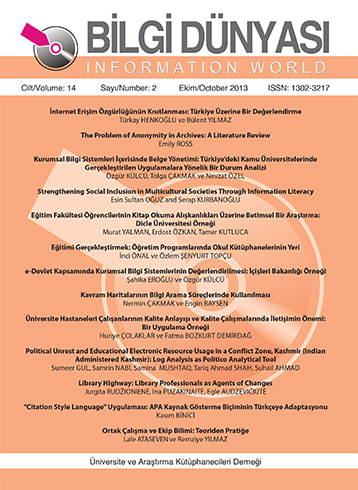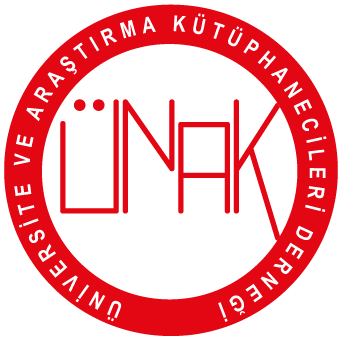Restrictions of Internet Access Freedom: An Evaluation Study of Turkey
DOI:
https://doi.org/10.15612/BD.2013.118Keywords:
Internet, Censorship, Filtering, Denial of access, Law 5651, Administrative measurement, TurkeyAbstract
In Turkey, the fact that there are some restrictions on Internet access and that the people’s perceptions of censorship may vary shows itself clearly in the literature related these issues. When review the literature; it is seen that there are many studies which demand unlimited Internet access, criticize the Law No. 5651 and argue in favor of its removal, and describe all Internet filters and restrictions as censorship. In this study; it is aimed to evaluate the current practices in Turkey, which restrict the freedom of Internet access, in the light of existing legal regulations. In contrast to previous studies, in this one; the relationships among practices, legislations and decisions taken were examined in detail, it is questioned that to which degree the closure of web sites containing harmful content has been successful, and some suggestions were made related to what should be done in order to achieve the goal of Internet restrictions. In addition, attention was drawn on how to easily gain access to the closed web sites through alternative methods, and this situation was evaluated in respect of legal regulations regarding the freedom of information access. Furthermore, the validity of criticisms found in literature was re-evaluated through examining the legal regulations, decisions taken to prevent access, decisions of Supreme Court, and the level of intended goal state reached as a result of current implementations. The results of the study show that there is a common will around the world to fight against the harmful content targeting children; however, in Turkey due to the non-transparent methods, implementations of more comprehensive methods of struggle are perceived as censorship. In addition, the statistics regarding the closed web sites in Turkey show that the Law No. 5651 and its implementations are insufficient in terms of intended goals.
Downloads
Published
How to Cite
Issue
Section

This work is licensed under a Creative Commons Attribution 4.0 International License.






